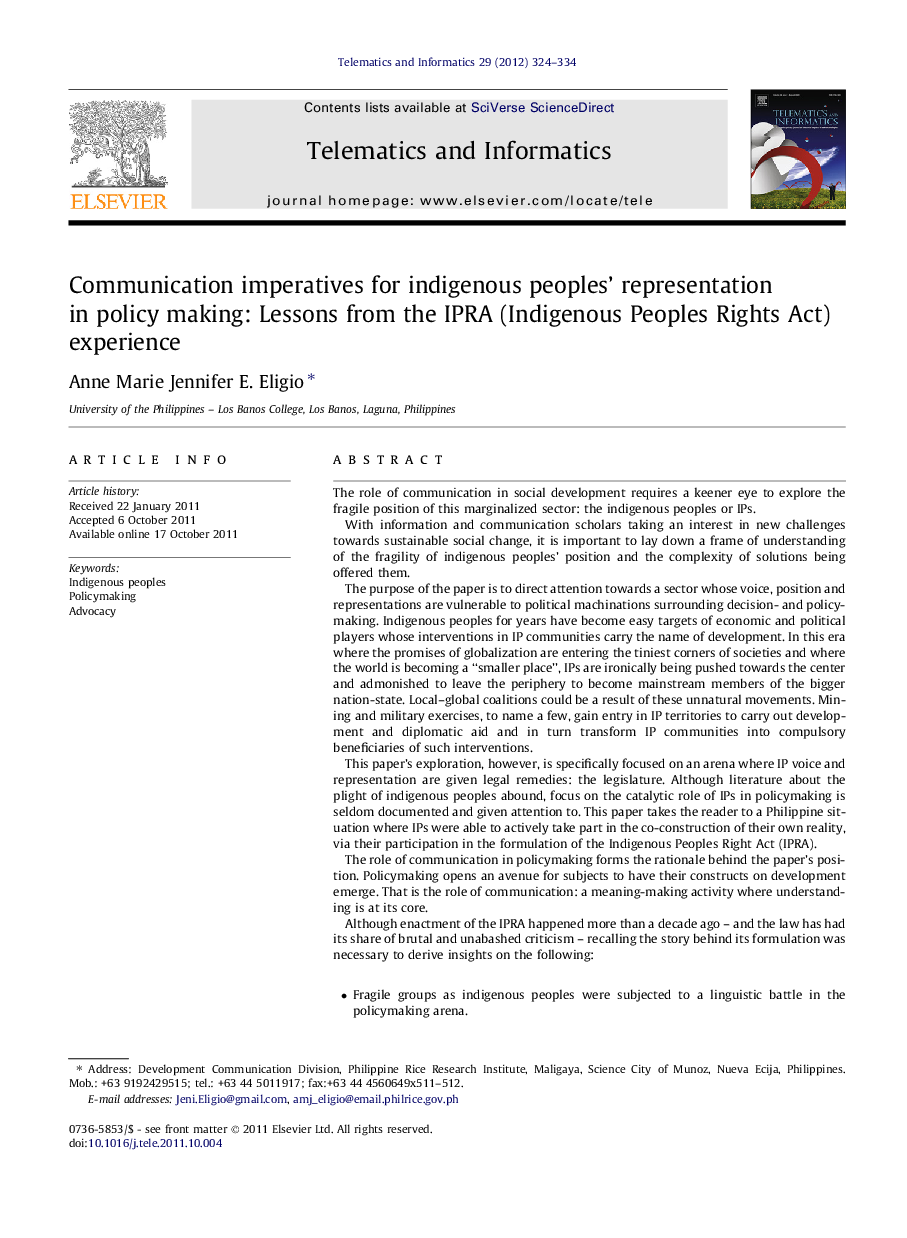| Article ID | Journal | Published Year | Pages | File Type |
|---|---|---|---|---|
| 464505 | Telematics and Informatics | 2012 | 11 Pages |
The role of communication in social development requires a keener eye to explore the fragile position of this marginalized sector: the indigenous peoples or IPs.With information and communication scholars taking an interest in new challenges towards sustainable social change, it is important to lay down a frame of understanding of the fragility of indigenous peoples’ position and the complexity of solutions being offered them.The purpose of the paper is to direct attention towards a sector whose voice, position and representations are vulnerable to political machinations surrounding decision- and policy-making. Indigenous peoples for years have become easy targets of economic and political players whose interventions in IP communities carry the name of development. In this era where the promises of globalization are entering the tiniest corners of societies and where the world is becoming a “smaller place”, IPs are ironically being pushed towards the center and admonished to leave the periphery to become mainstream members of the bigger nation-state. Local–global coalitions could be a result of these unnatural movements. Mining and military exercises, to name a few, gain entry in IP territories to carry out development and diplomatic aid and in turn transform IP communities into compulsory beneficiaries of such interventions.This paper’s exploration, however, is specifically focused on an arena where IP voice and representation are given legal remedies: the legislature. Although literature about the plight of indigenous peoples abound, focus on the catalytic role of IPs in policymaking is seldom documented and given attention to. This paper takes the reader to a Philippine situation where IPs were able to actively take part in the co-construction of their own reality, via their participation in the formulation of the Indigenous Peoples Right Act (IPRA).The role of communication in policymaking forms the rationale behind the paper’s position. Policymaking opens an avenue for subjects to have their constructs on development emerge. That is the role of communication: a meaning-making activity where understanding is at its core.Although enactment of the IPRA happened more than a decade ago – and the law has had its share of brutal and unabashed criticism – recalling the story behind its formulation was necessary to derive insights on the following:•Fragile groups as indigenous peoples were subjected to a linguistic battle in the policymaking arena.•Consensus-building and social negotiations were communication approaches that contributed to IP representation in policymaking.•IP-led advocacy shows that IPs as leaders and advocates can competently involve themselves in the affairs of government.•There are imperatives of communication and information that can help facilitate the engagement of indigenous peoples in solving social problems, via the legislative arena.Information and insights concerning IPs’ position and representation, the role contributed by communication, and distinctive qualities of IP-led advocacy are derived from the IPRA story. The routes by which the development project operates in the policymaking arena, as illustrated in the case of the IPRA, are then able to offer insights to the tasks we continue to face as information and communication scholars and practitioners.
